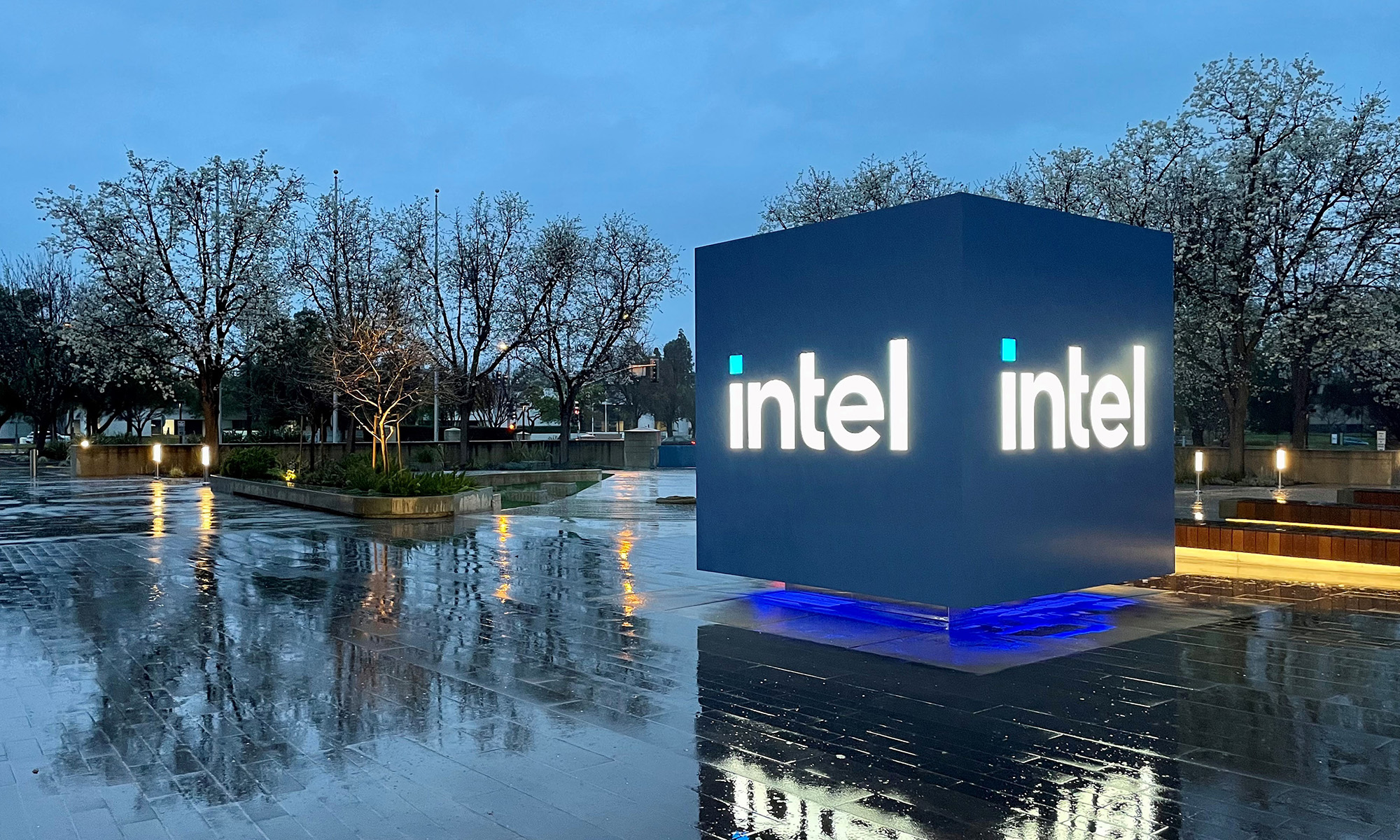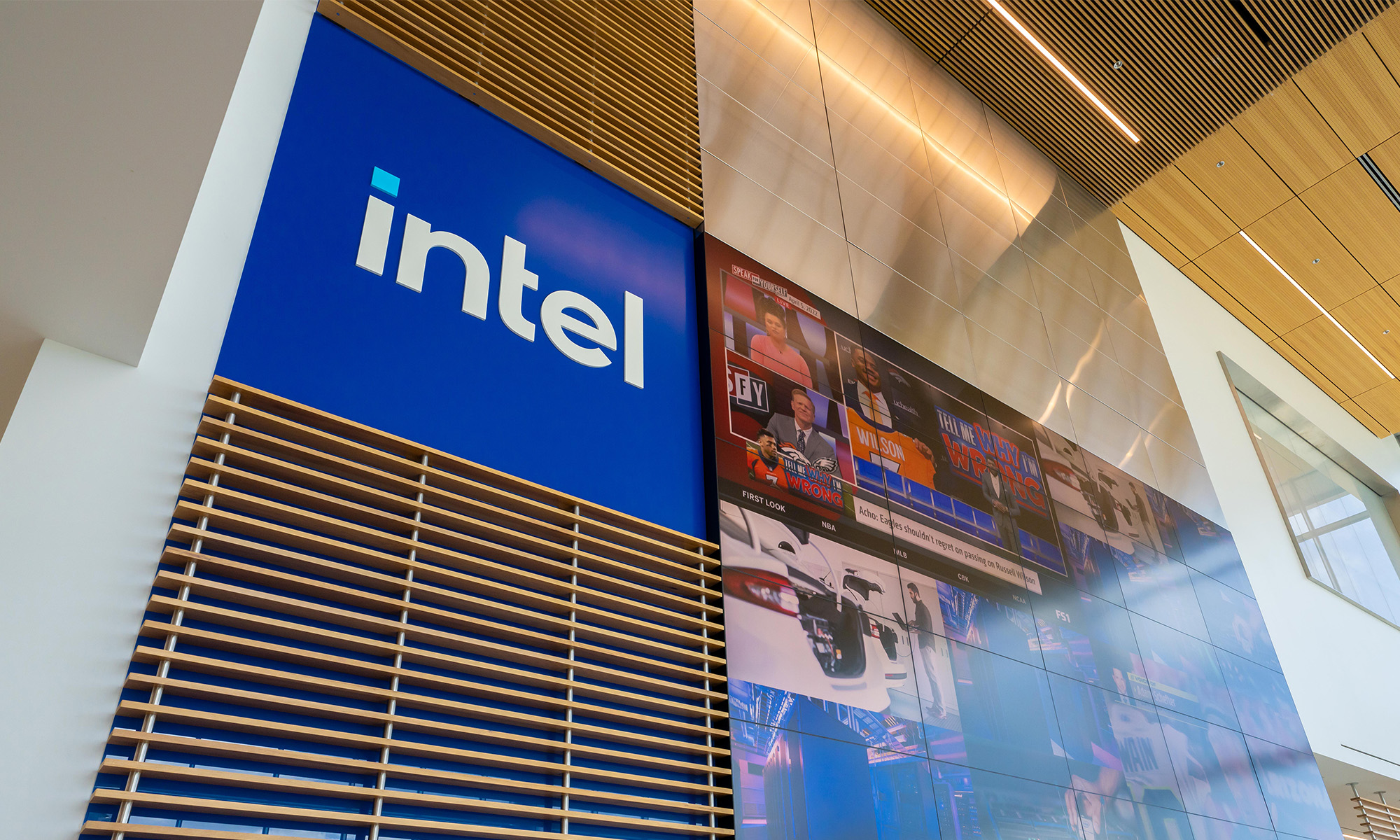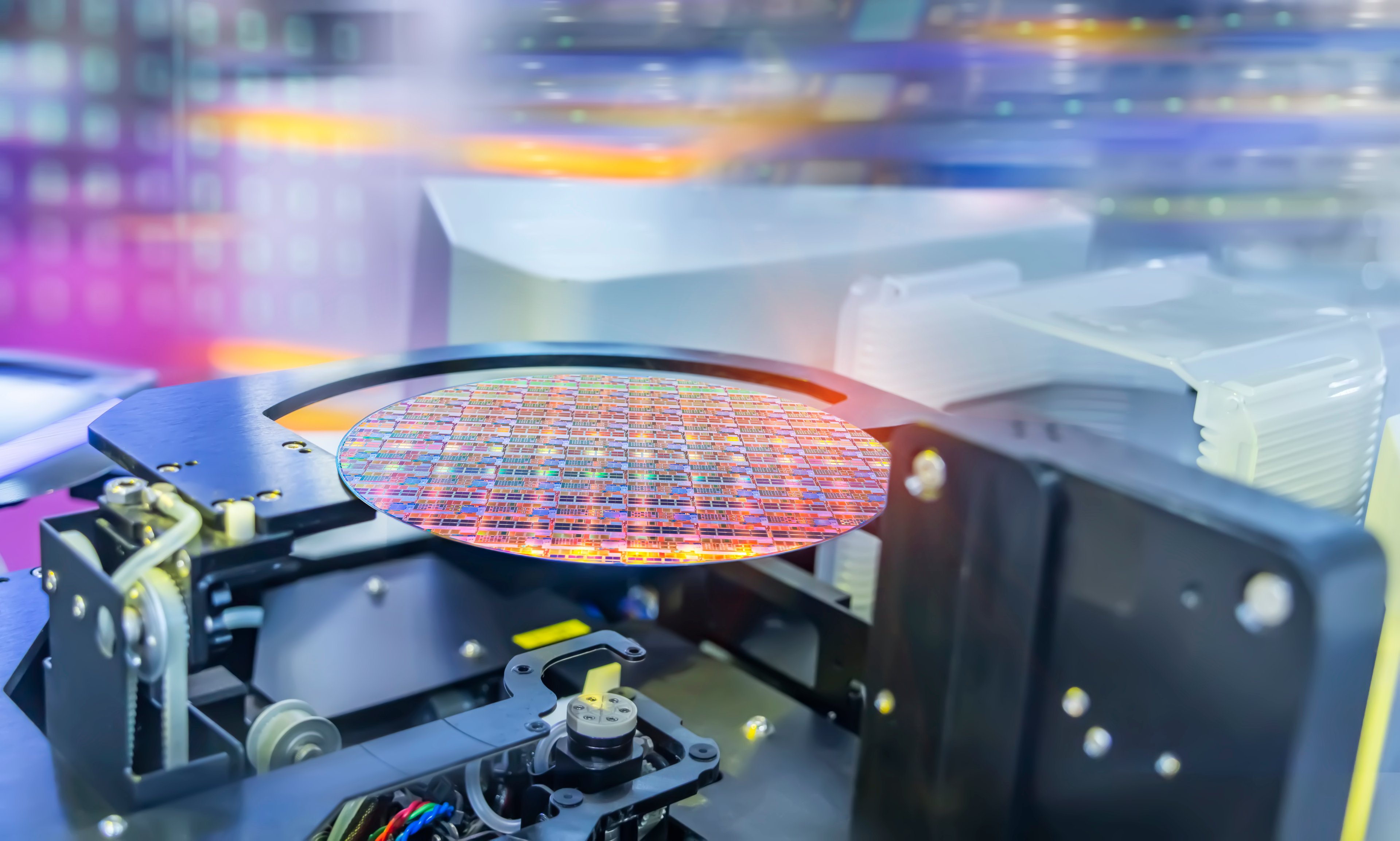
A wafer of Intel processors. Image credit: Intel.
Market research firm Gartner recently put out a press release in which it claims that the market for personal computers is "bottoming out." In particular, the firm claims that, after five long years of consecutive PC declines, the market will return to positive growth in 2017.
Furthermore, the firm appears to be calling for this growth to continue out through the year 2019.
If this is true, then Intel (INTC +5.00%) investors have a lot to be excited about. If Intel sees PC shipments grow from 2017 onwards, then achieving some fairly nice revenue growth (assuming that the company's data center business keeps on growing) won't be as difficult as it has been in recent years.
However, in studying the press release, I find the reasoning here unconvincing. Let's take a closer look.
The smartphone spend is peaking argument
The first argument that Gartner makes is that "the amount of spend on smartphone is peaking" in mature markets. It goes on to further claim that Apple (AAPL +4.12%), the market leader in smartphones in the United States, "will not see the same increase in average selling price for the iPhone 7 as it did from the 5 to the 6."
This, Gartner argues, "will free up spending for PCs."
Huh? It's not as though Apple will see a regression in iPhone average selling prices, so it's not as though there should be any spending freed up from a potential lack of iPhone average selling price uplift.
What this should imply, if true (I'm doubtful because Apple is apparently planning to roll-out an even higher tier of iPhone that very well could boost iPhone average selling prices), is that the amount that customers have to spend on PCs won't shrink any further.
This seems to be an argument in favor of PC stabilization, not necessarily PC growth.
The "Skylake and Windows 10 will fix things" argument
Echoing the sentiments that Intel management has expressed on several occasions, Gartner also claims that Intel's new Skylake processor family, coupled with Microsoft's (MSFT 1.52%) Windows 10, have the potential to deliver "new form factors with more attractive features."
Gartner also goes on to say that "the frustration with the capabilities in tablets will drive some consumers and businesses to review new form factors." In other words, Gartner appears to be predicting that the tablet market will be eaten up by 2-in-1 PCs.
A reasonable argument, and one that PC processor vendor Intel claims is actually already happening (see slide 9), but given that this trend is already happening to some extent, I'm not sure that it'll be enough to drive PC sales to sustained growth over a number of years.
The "PC is delivering innovation" argument
Finally, Gartner said that the PC market is "matching the supply of products with the needs of users." The research firm gave as examples some new form factors such as compute sticks, ultra-mini PCs, and all-in-one desktops.
"In the future, we can look forward to desktops with added functionalities, including 3D scanner, printer, 3D printer, voice recognition, motion sensor for gesture input and holography," the release read.
Although it is true that the PC market has been seeing different form factors as Gartner says, none of this has really served to help PCs return to growth so far. Further, I would argue that PCs these days are generally good and only getting better.
Despite these improvements, PC sales continue to decline. I just don't see how any of these "new" things will work in the future if similar attempts over the last several years just haven't worked.
I just can't buy it
Although I'd love for Gartner to be right in its projections, I just can't base any investment decision on a hypothesis that relies on the PC doing anything but staying flat or declining in the coming years. It's a grim reality, but running from it won't change the cold, hard quarterly numbers that Intel reports.








